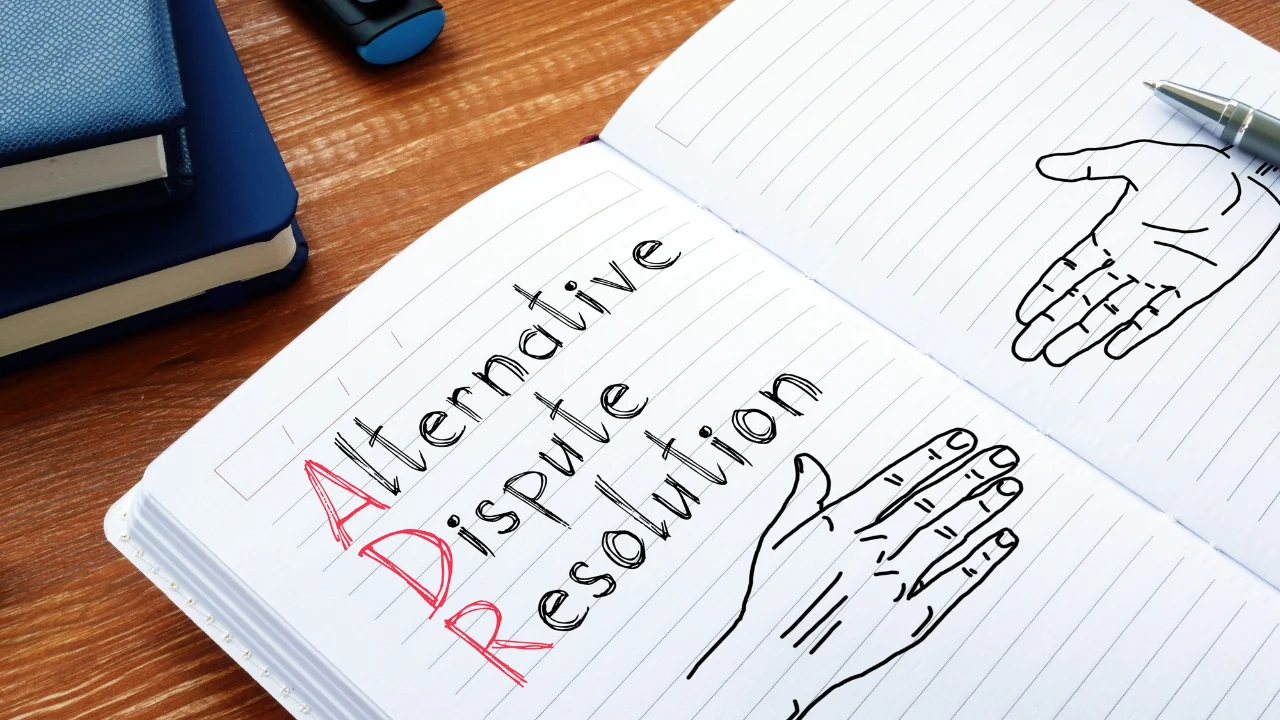
Alternative Dispute Resolution (ADR) in NSW personal injury claims: a claimant’s guide
Published on June 19, 2025 by Maithri Panagoda AM
Alternative Dispute Resolution (ADR) refers to a range of processes used to resolve disputes outside the traditional court system. In New South Wales, ADR has become increasingly important for personal injury claimants, offering a more efficient, cost-effective, and often less stressful way to resolve claims.
What is ADR?
ADR encompasses various methods, including:
- Mediation – a neutral third party facilitates negotiations between the parties.
- Arbitration – an impartial arbitrator hears evidence and makes a binding decision.
- Conciliation – like mediation, but the conciliator takes a more active role in proposing solutions.
Importance for personal injury claimants
- Cost-effectiveness
ADR typically involves lower legal fees and court costs compared to full litigation, allowing claimants to retain a larger portion of their compensation. This is particularly beneficial for claimants who may be facing financial strain due to their injuries.
In a contested matter that runs into 3-4 days, the costs could be significant. In private Mediations, parties generally agree to share the Mediator’s fees.
- Time efficiency
Personal injury claims can be resolved faster through ADR, reducing the stress and uncertainty of prolonged legal proceedings. While court cases can take years to resolve, ADR processes often conclude within weeks or months.
- Flexibility and control
Claimants have more input in the resolution process, often leading to more satisfactory outcomes. This flexibility allows for creative solutions that may not be available through traditional court proceedings.
- Preservation of relationships
For workplace injury claims, ADR can help maintain professional relationships, which is crucial for ongoing employment. The collaborative nature of ADR processes can foster understanding and reconciliation between parties.
Court hearings can be unpleasant as they are adversarial by nature and parties and witnesses need to face cross examination.
- Confidentiality
Unlike public court proceedings, ADR offers privacy, which can be important in sensitive personal injury cases. This confidentiality can protect the reputations of all parties involved and encourage more open communication.
ADR in the NSW legal system
In NSW, the Civil Procedure Act 2005 encourages parties to consider ADR before commencing legal proceedings. This reflects the recognition of ADR as an effective method of resolving disputes, including personal injury claims.
The Personal Injury Commission (PIC) in NSW also strongly endorses ADR methods. For workers’ compensation disputes, the PIC employs a pathway that begins with informal dispute resolution techniques, such as teleconferences and conciliation conferences, before proceeding to formal arbitration if necessary.
Types of ADR in personal injury claims
- Mediation
Mediation is particularly effective in personal injury cases. It involves a neutral mediator facilitating discussions between the injured party and the insurance company or their representatives. The mediator helps parties explore settlement options and reach a mutually agreeable solution.
- Arbitration
In arbitration, an independent expert hears evidence from both sides and makes a binding decision. This can be useful in complex cases where technical expertise is required.
- Conciliation
Conciliation is often used in workers’ compensation disputes. The conciliator takes a more active role than a mediator, proposing potential solutions to help parties reach an agreement.
Accessing ADR in NSW
Claimants can access ADR through various channels:
- Private mediators or arbitrators
- Community Justice Centres
- Court-annexed mediation programmes
- The Personal Injury Commission (for workers’ compensation disputes)
The ADR process in personal injury claims
- Initiation – either party can suggest ADR, or it may be mandated by a contract or court.
- Preparation – parties gather relevant documents and evidence.
- Selection of ADR professional – a mediator, arbitrator, or conciliator is chosen.
- The ADR session – parties present their cases and engage in facilitated discussions.
- Resolution – if successful, parties reach an agreement. If not, they may proceed to litigation.
Benefits of ADR for personal injury claimants
- Reduced stress – ADR is generally less adversarial than court proceedings.
- Customised solutions – parties can agree on outcomes that a court might not have the power to impose.
- Expertise – ADR professionals often have specialised knowledge in personal injury matters.
Challenges and considerations
While ADR offers many benefits, claimants should be aware of potential challenges:
- Power imbalances – in personal injury cases, there may be a disparity between the resources of the claimant and the insurance company.
- Lack of precedent – ADR outcomes do not create legal precedents, which may be important in some cases.
- Enforceability – while arbitration decisions are binding, mediation agreements may require additional steps to ensure enforceability.
Preparing for ADR
To maximise the chances of a successful ADR process, claimants should:
- Consult with their experienced personal injury lawyer
- Prepare a clear statement of their desired outcomes
- Be open to compromise and creative solutions
For personal injury claimants in NSW, understanding and utilising ADR can lead to faster, more cost-effective, and potentially more satisfactory resolutions to their claims. As the legal system continues to recognise the benefits of ADR, it is becoming an increasingly important tool for claimants seeking justice and fair compensation.
ADR offers a valuable alternative to traditional litigation, providing flexibility, efficiency, and the potential for more personalised outcomes. However, it is crucial for claimants to approach ADR with proper preparation and, ideally, with the guidance of an experienced personal injury lawyer to ensure their rights and interests are fully protected throughout the process.
Maithri Panagoda presented a paper on the “Cross-cultural Issues in Alternative Dispute Resolution” at the LAWASIA International Conference in Singapore on 22 May 2025.
Please note that this article does not constitute legal advice. If you are seeking professional advice on any legal matters, you can contact Carroll & O’Dea Lawyers on 1800 059 278 or via our Contact Page and one of our lawyers will be able to assist you. If you or a loved one have been injured, use our Personal injury Claim Check now.
Disclosure and important note: This article is based on our own legal research and thinking. Some of its content has been generated with the assistance of artificial intelligence. The authors have checked and approved this article, including the AI generated content, for publication.
